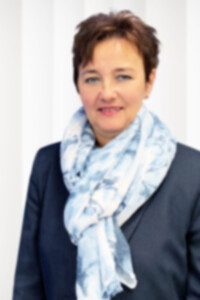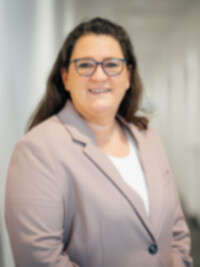
Corona-Virus UPDATE
Dr. Andreas Bastin, CEO of the Masterflex Group, talks to the editors of MFGconnect, the employee app of the Masterflex Group, about the current situation.
Emerging stronger from the coronavirus crisis
Dr. Bastin, the Masterflex Group has also been unable to escape the impact of the coronavirus crisis. Looking back on recent months and ahead to the near future, how would you assess the business situation?
As things currently stand, the low point for us was in the second quarter, although the situation as a whole remains challenging. Our findings support the latest data from the ifo Business Climate Index, which climbed from 92.5 points in August to 93.4 points in September. At Masterflex Group, too, the situation is more positive than it was in the previous months. The economy is visibly stabilising. However, the unclear nature of the pandemic situation makes it difficult to draw robust quantitative conclusions. Following a temporary stabilisation in the number of coronavirus cases, the rate of community transmission is currently rising again. In the rest of Europe in particular, the authorities are reintroducing restrictions on public life. Although Masterflex would be unable to entirely avoid the impact of a renewed and widespread lockdown, we believe we are well positioned to stand our ground even in a challenging economic environment. We are in the fortunate position of having a crisis-resistant positioning when it comes to our customers’ industries and our regional sales markets.
So you are satisfied with Masterflex Group’s business performance this year in light of the coronavirus situation?
Yes, that would be fair to say. Of course, we have felt and continue to feel the impact of the crisis. The second quarter in particular saw a substantial decline in revenue of 19 percent. With a reduction of 10 percent across the first half of 2020, we performed better than many companies on the whole. This is where our industry diversification is advantageous. It is no secret that the coronavirus has had a particularly pronounced impact on industries like automotive and mechanical engineering, which were already experiencing a downturn prior to the pandemic. Unlike in previous economic crises, deliveries to the aviation industry have also declined significantly.
At the same time, some of our business units have actually benefited from the pandemic. In particular, this includes our product areas for the medical, laboratory and pharmaceutical industry. Growth in business with customers from the medical and laboratory technology sectors and the food industry allowed us to compensate for the downturn in business in other areas fully in the first quarter, and at least partially in the face of the economic slump in the second quarter.
I cannot stress this enough: Despite the global economic downturn, Masterflex Group was profitable in the first half of the year, as well as in the second quarter when the COVID-19 crisis hit particularly hard. At the same time, we have succeeded in increasing our liquidity and reducing our net debt. This is thanks to the aforementioned focus on future-oriented industries and, in particular, the optimisation programme we initiated in 2019.
Speaking of which, to what extent has your B2DD programme been set back by the coronavirus crisis?
The measures forming part of our “Back to Double Digit” programme itself are largely complete. In other words, we have not been set back by the crisis. Instead, we were actually a long way ahead of our time. We launched the optimisation programme well before the pandemic hit and have systematically implemented the majority of the measures over the past year. The structures for returning to double-digit EBIT margins like in the past were already put in place prior to the pandemic. The result is that our cost situation has improved by at least EUR 2.5 million. This can already be seen in the first half of the year despite the impact of COVID-19. The fact that we were able to stabilise our earnings even in a difficult revenue situation is a direct consequence of B2DD. Although the coronavirus crisis means the effects are not yet visible, what we have achieved to date serves to illustrate what is within our grasp as revenue picks up again. This makes me extremely optimistic with regard to the post-corona phase.
What additional measures have you taken during the coronavirus crisis?
Early on in the crisis, we adapted quickly so as to cushion the direct impact of the COVID-19 pandemic and, in particular, to guarantee our employees’ safety. This dynamism also reflects what we understand by operational excellence. Specifically, we took advantage of reduced working hours at our German locations, leading to additional savings in staff costs above and beyond the B2DD programme. A significant reduction in business travel and the cancellation of trade fairs also meant additional cost savings. We are rather proud of the fact that, despite the upheaval, we have not had to recognise any impairment losses on intangible assets or take on any government coronavirus relief loans. Instead, we have actually reduced our debt from our own operations, and we do not intend to take advantage of any government aid in future.
So you remain optimistic and are sticking to your existing forecasts?
Our forecast for 2020 is extremely cautious, but we are maintaining our goal of returning to a double-digit EBIT margin by 2022. In the same way as for most companies, 2020 and the coronavirus crisis are just a temporary blip in our revenue development. We have enjoyed stable growth over the past ten years, so I am confident that we will return to our growth path once the pandemic subsides. This is further reinforced by the fact that the main market drivers are intact and we are benefiting from our focus on life science markets, i.e. medical and laboratory technology, as well as the food and pharmaceuticals industries and the growth in each of these markets. In concrete terms, Masterflex Group expects the pandemic to result in a downturn in revenue of between 10 and 15 percent in 2020, with EBIT declining to between EUR 1.0 million and EUR 2.5 million. Our target is to achieve a double-digit EBIT margin in 2022 and we expect to break EUR 100 million in revenue in 2023/2024.
The optimisation in response to the coronavirus must have involved some form of cutbacks, though?
Cutbacks are part and parcel of changing course. From looking at the daily press, however, Masterflex has been far less hard hit than the key industries of automotive and aviation in this respect. We decided to close our production sites in France and the Czech Republic and concentrate manufacturing on our locations in Germany. Our production site in Gelsenkirchen was easily able to absorb the shift of the small volumes that were manufactured in France, not least thanks to the productivity improvement measures we have implemented. As the production site in the Czech Republic primarily focused on the aviation industry, we had no choice but to respond to what is likely to remain a difficult situation in the industry for some time to come. This reflects the fact that aviation business is expected to remain well below pre-crisis levels even in the medium term. We currently expect the business volume to return to between 60 and 70 percent of its previous level, and this can be covered by our site in Norderstedt, which had been reaching the limits of its capacity in terms of staff availability in particular. All in all, these measures are allowing us to leverage synergies to a greater extent.
However, we will continue to operate sales offices in both locations.
Are you not concerned about the uncertain economic development in the wake of the coronavirus?
Ultimately, there is nothing we can do about the economy. What we can do, and what we have done with some success, is to strategically position the group so that any economic fluctuations are manageable. We are well prepared and extremely well positioned both regionally and within the various markets we serve with our products. In terms of economic sensitivity, our individual target markets give us a good positioning because they have different economic dependencies and cycles.
Areas such as medical technology, laboratory technology and the food industry are subject to a different set of rules than aviation or traditional industry. Each of our target industries has its own cycle but is affected at a different time and with differing intensity. Furthermore, we are not reliant on a small number of large customers, but are well diversified within our customer segments. The implementation of our B2DD optimisation programme in conjunction with operational excellence also serves to ensure that we have sufficient leeway on the cost side.
How are Masterflex Group activities in the various regions currently developing following the peak of the pandemic in spring?
Our business in China was particularly hard hit in the first quarter. Production came to a halt for around four weeks. We are now seeing a significant recovery in China, due in part to catch-up effects. Demand from the local wind power energy industry is particularly strong. As such, our production sites in China have long since returned to a healthy level of utilisation.
Europe was the most hard-hit region in the second quarter. We are also seeing a slight signs of a recovery here, too, albeit unfortunately not to the same degree as in markets like China. It is difficult to predict the extent and, above all, the timing of more pronounced catch-up effects in Europe. In the Americas, we had been at the same level as in the previous year, but we expect the pandemic to result in a temporary downturn in Q3.
These staggered developments illustrate just how important our international positioning is when it comes to cushioning the impact of external crises like the coronavirus pandemic.
Some winners have emerged from the coronavirus crisis – especially in medical technology, one of Masterflex’s industries for the future. Has the Masterflex Group also benefited?
There is no doubt that we have. Some of our highly specialised hose and connection solutions are key components in applications such as state-of-the-art, efficient ventilation and anaesthetic systems, including those used to treat COVID-19 patients. Other areas of emergency medical care in particular, from angiography, endoscopy and dialysis through to urology and dentistry, are served by our hoses, connectors and specially customised connection solutions.
Of course, there are also some medical applications where demand is lower as a result of the COVID-19 pandemic. This primarily relates to elective procedures such as dental prostheses and eye surgery. We expect to see significant catch-up effects in these areas as soon as the impact of the pandemic recedes, and in particular the risk of infection in medical facilities.
In addition to “pure medical technology” like you mention, we serve other markets that are benefiting from the pandemic, or at least that have not been negatively affected by it. Within the Masterflex Group, this relates in particular to our hoses and connection solutions for applications in the laboratory and biotech industry and for food and pharmaceutical customers.
As it happens, we have been strengthening our activities in these areas – which we intend to combine under the “life science” market designation – for some time now, irrespective of the current COVID-19 pandemic. In recent years, the share of our business attributable to the life science markets has increased significantly thanks to the targeted development of products and solutions as well as the continuous expansion of our sales and engineering activities.
The positive outlook is not reflected in Masterflex SE’s share price, which is broadly at the same level as in 2010. How do you interpret this?
As a member of the Executive Board, I am reluctant to comment on our share price. My Executive Board colleague Mark Becks and I demonstrated our opinion of the current share price at the start of this year, when we invested a considerable amount of our own money in Masterflex. And we are more convinced by this decision than ever.
We see it as an investment in an absolute technology leader for high-tech hoses and connecting systems with strong brands and access to a broad customer base that is well balanced in terms of the economic sectors it covers, from traditional mechanical engineering and industry through to medical technology and life science. Masterflex is doing better than ever in terms of its diversification, its international presence, the quality of its balance sheet and the outlook for its margins, all accompanied by revenue that has nearly doubled in the past ten years. Our investment is a clear expression of our expectation for the future. The market will take care of the rest sooner or later.











